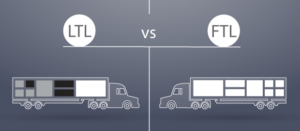At Freight Motion, we have customers who discuss various transportation issues they had in the past. We would like to share one here to raise awareness of underlying issues, market trends, and possible solutions.
In today’s post, we would like to clarify some commonly used verbiage in the freight industry. We have noticed lately that many of our clients are not sure what category their shipments fall into, so let us tackle this subject.
We will keep it simple and start with four commonly used terms: LTL, Volume, Partial and Truckload.
 LTL means Less-Than-Truckload. LTL is usually a shipment that is less than six pallets. LTL transit times are longer because LTL Carriers transfer freight through terminals located strategically around the country.
LTL means Less-Than-Truckload. LTL is usually a shipment that is less than six pallets. LTL transit times are longer because LTL Carriers transfer freight through terminals located strategically around the country.
Volume shipments typically take up between 12-24 feet of trailer. Not many companies are set up to handle volume shipments. Volume shipments move as space is available, so their transit times are usually longer.
Partials are similar to volume in size, but move with companies that deal mostly with Truckloads. Transit times can be various, but are typically less than volume or LTL transit times.
A Truckload is a shipment that requires an entire dedicated truck. Transit times are faster because Truckloads go directly from pickup to delivery without stopping at terminals.
Does your broker give you options for shipping LTL, Volume, Partial and Truckload? Do they put the responsibility on you to determine which option to choose?
At Freight Motion, we will talk you through options and help you choose the best one for your shipment.
How would that benefit you?


